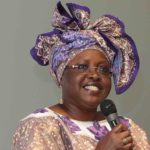Webinar: Race and Sociocultural Inclusion in Science Communication
Join us for a special webinar that addresses race, sociocultural inclusion, decolonization and transformation in science communication. The webinar, co-hosted with Ingenium, Canada’s Museums of Science and Innovation, is presented as part of the CIMUSET Special Recognition Award, which was awarded this year to the book Race and Sociocultural Inclusion in Science Communication – Innovation, Decolonisation, and Transformation, edited by Elizabeth Rasekoala.
This important work has earned special recognition for its pioneering approach to diversity, equity, and inclusion within science communication, a field of relevance for science museums and centers worldwide.
Don’t miss this opportunity to hear more about the book’s insights and its potential to inspire meaningful change in science communication and museum practices.
How to watch
Please click here to watch the recorded webinar.
Presentations
 Moving beyond DEI to globally wide-angled lenses of socio-political-cultural imperatives in Inclusive Science Communication by Dr Elizabeth Rasekoala
Moving beyond DEI to globally wide-angled lenses of socio-political-cultural imperatives in Inclusive Science Communication by Dr Elizabeth Rasekoala
This presentation frames and elaborates on the critical globally inclusive worldviews, perspectives, challenges and insights for the conceptualisation and production of this seminal Book volume. It furthermore outlines some of the key innovative and transformative themes, concepts, principles, best practices and action-oriented paradigm shifts that are interrogated, analysed, discussed and showcased across the Book chapters, by its 30 diverse contributing authors from the Global South and North.
 The Power of Storytelling in Exhibitions: Unpacking Colonial Legacies in Science Centres & Museums Narratives by Mohammed Belhorma
The Power of Storytelling in Exhibitions: Unpacking Colonial Legacies in Science Centres & Museums Narratives by Mohammed Belhorma
In his essay Profanation, Giorgio Agamben argues that museums function as modern temples, preserving objects as sacred and immune from profanation. However, this analysis overlooks the colonial context, where Indigenous knowledge and artifacts were often profaned to enter museums in the first place. This presentation will explore how storytelling in museums, much like in Agamben’s essay, can perpetuate colonial tropes rather than dismantling them. By examining the structures of storytelling in exhibitions, we aim to reveal how these narratives continue to reinforce colonial legacies, shaping the way audiences perceive these objects.
 Re-imagining inclusive Science Communication in Africa: Transformative paradigm-shifts to Afrocentricity in Policy-making and Capacity-building for African Researchers’ by Dr. Rejoyce Gavhi-Molefe
Re-imagining inclusive Science Communication in Africa: Transformative paradigm-shifts to Afrocentricity in Policy-making and Capacity-building for African Researchers’ by Dr. Rejoyce Gavhi-Molefe
The African scientific enterprise and its communication landscape are undergoing significant transformation, driven by a critical rethinking of how knowledge is produced, shared, and valued. This presentation will discuss the urgent need for Afrocentric science communication, drawing from the presenter’s book chapter, Building Capacity for Science Communication in South Africa: Afrocentric Perspectives from Mathematical Scientists. It showcases how young African researchers are empowered with leadership skills and Afrocentric frameworks to advance inclusive science engagement through the transformative Africa Scientifique (AS) Programme. The AS Programme addresses policy gaps and challenges the dominance of Eurocentric models, fostering a more diverse, equitable, and impactful communication landscape across the continent.